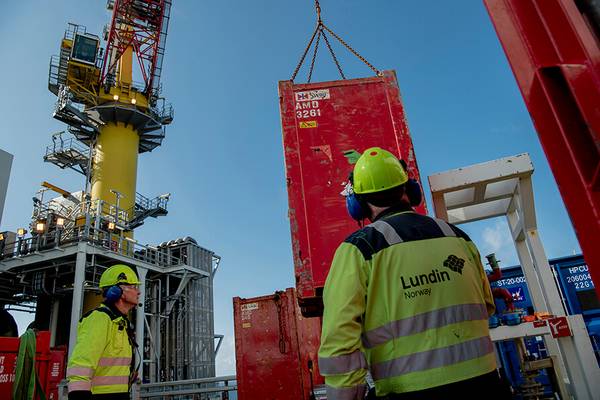
Swedish oil and gas company Lundin Petroleum is aiming to become carbon neutral by 2030. It has also proposed to lose the „petroleum“ part from its name, and replace it with „energy.“
Announcing the launch of its Decarbonization Strategy on Monday, Lundin Petroleum said it recognized the challenges of climate change combined with the increasing energy needs linked to the growing global population, the international community’s commitment to reduce global carbon emissions “and the role that forward-thinking companies can play in this.“
The company mostly focused on offshore oil and gas exploration and production in Norway plans to limit average operated and non-operated portfolio carbon intensity to below 4kg CO2 per boe from 2020 and from 2023 to below 2kg CO2 per boe.
Furthermore, Lundin Petroleum said Edvard Grieg, and Johan Sverdrup Phase 2 platforms would in 2022 be fully electrified to achieve carbon intensity for these assets of less than 1kg CO2 per boe.
Also, from 2022 Lundin Petroleum has committed to replace all net electricity usage from power from shore, through investments in renewable power generation.
"By 2030 achieve carbon neutrality across our operations as an oil and gas “With the Decarbonisation Strategy, the Company has formalized its ongoing commitment to reduce its carbon footprint to the lowest possible levels, through an effective combination of emissions reductions, energy efficiency, targeted research and development, and carbon capture mechanisms," Lundin Petroleum said.
Name change
The company's board has also proposed the name change from Lundin Petroleum to Lundin Energy.
"Lundin Energy better reflects what the Company is doing as an explorer and producer today and its role in supplying the energy transition with the most sustainable oil and gas production possible as an essential part of the future energy mix," Lundin Petroleum said.
With the name change, Lundin is following in the footsteps of one of its partners in the Johan Sverdrup field - Equnior - which changed its name from Statoil to Equinor back in 2018 - to reflect the company’s strategy and development as a broad energy company."
Alex Schneiter, President and CEO of Lundin Petroleum commented: “I am personally very proud to announce the launch of our Decarbonisation Strategy, through which we are seeking to formalize our commitment to reducing emissions and our carbon footprint, in order to supply the growing demand for all types of energy with the most sustainably produced product we can.
"We have a target of 2030 to reach carbon neutrality across our operations and we have set out a realistic and deliverable pathway towards this, which clearly differentiates us as an independent oil and gas producer in our industry.
“I am also pleased to announce that the Board is proposing to change the name of the Company to Lundin Energy. It represents our ambition to become carbon neutral, our position as a leading provider of oil and gas in the future and recognition of our role in the changing energy mix.”
Oil companies must do more
Oil and gas companies are facing a critical challenge as the world increasingly shifts towards clean energy transition, and failure to address growing calls to reduce greenhouse gas emissions could threaten their long-term social acceptability and profitability, the International Energy Agency said last week.
“No energy company will be unaffected by clean energy transitions,” said Fatih Birol, Executive Director of the International Energy Agency. “Every part of the industry needs to consider how to respond. Doing nothing is simply not an option.”
The landscape of the oil and gas industry is diverse, meaning there is no single strategic response but a variety of approaches depending on each company’s circumstances, IEA said.
“The first immediate task for all parts of the industry is reducing the environmental footprint of their own operations,” Dr Birol said. “As of today, around 15% of global energy-related greenhouse gas emissions come from the process of getting oil and gas out of the ground and to consumers. A large part of these emissions can be brought down relatively quickly and easily.”


